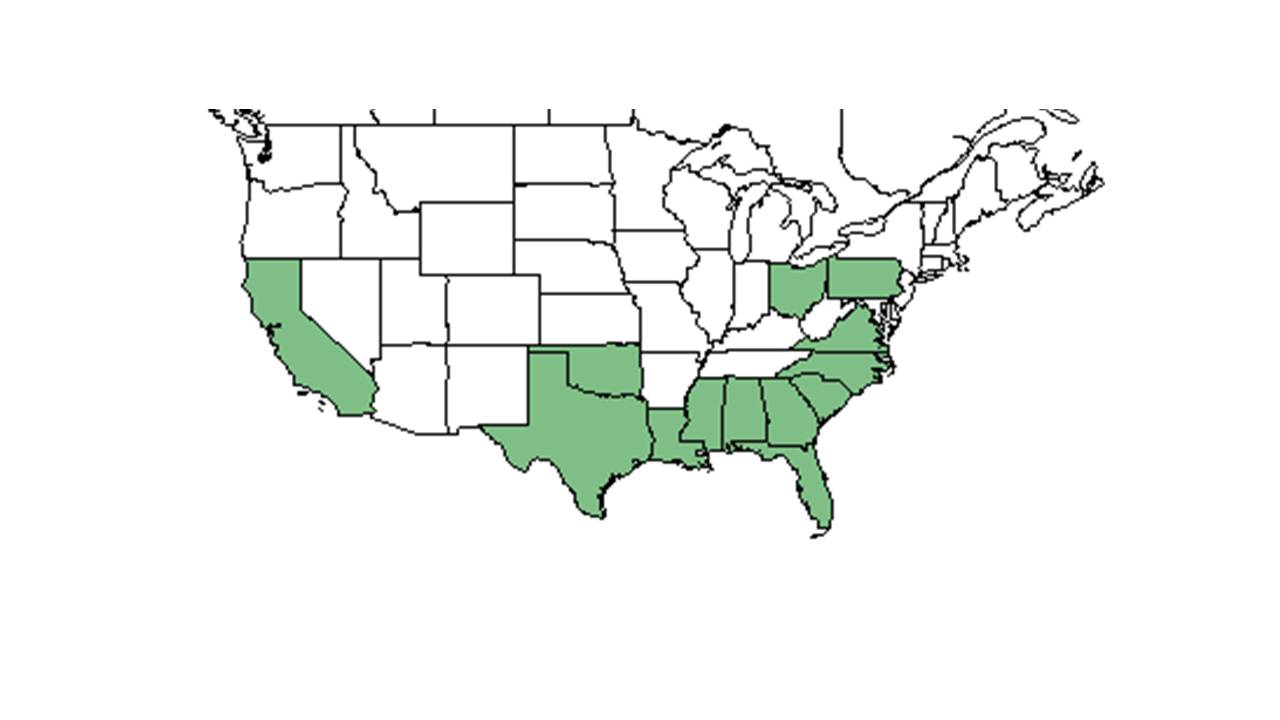Difference between revisions of "Gamochaeta pensylvanica"
KatieMccoy (talk | contribs) |
KatieMccoy (talk | contribs) |
||
| Line 27: | Line 27: | ||
==Ecology== | ==Ecology== | ||
===Habitat=== <!--Natural communities, human disturbed habitats, topography, hydrology, soils, light, fire regime requirements for removal of competition, etc.--> | ===Habitat=== <!--Natural communities, human disturbed habitats, topography, hydrology, soils, light, fire regime requirements for removal of competition, etc.--> | ||
| − | ''G. pensylvanica'' has been found in sandy loam of floodplain forests; scrubby growth of old burn in coastal hammocks; marsh edges; lake shores; fallow fields; dried up lake bottoms; cabbage palm hammocks; limestone glades; and pinewoods. It can be found in human disturbed areas such as roadsides, citrus groves, vacant lots, pastures, lawns, and fire breaks (FSU Herbarium). Soil types include sandy loam | + | ''G. pensylvanica'' has been found in sandy loam of floodplain forests; scrubby growth of old burn in coastal hammocks; marsh edges; lake shores; fallow fields; dried up lake bottoms; cabbage palm hammocks; limestone glades; and pinewoods. It can be found in human disturbed areas such as roadsides, citrus groves, vacant lots, pastures, lawns, and fire breaks (FSU Herbarium). Soil types include sandy loam, loamy sand, gray-black sand, and peaty soils (FSU Herbarium). Associated species include ''Acer, Celtis, Morus, Platanus, Populus, Quercus, Ulmus, Gamochaeta antillana, Hypochaeris glabra, Carex, Panicum commutatum, Stachys floridana'' and ''Gamochaeta coarctata'' (FSU Herbarium). |
===Phenology=== <!--Timing off flowering, fruiting, seed dispersal, and environmental triggers. Cite PanFlora website if appropriate: http://www.gilnelson.com/PanFlora/ --> | ===Phenology=== <!--Timing off flowering, fruiting, seed dispersal, and environmental triggers. Cite PanFlora website if appropriate: http://www.gilnelson.com/PanFlora/ --> | ||
Revision as of 21:05, 2 November 2015
| Gamochaeta pensylvanica | |
|---|---|
Error creating thumbnail: Unable to save thumbnail to destination
| |
| Scientific classification | |
| Kingdom: | Plantae |
| Division: | Magnoliophyta - Flowering plants |
| Class: | Magnoliopsida – Dicotyledons |
| Order: | Asterales |
| Family: | Asteraceae ⁄ Compositae |
| Genus: | Gamochaeta |
| Species: | G. pensylvanica |
| Binomial name | |
| Gamochaeta pensylvanica (Willd.) Cabrera | |

| |
| Natural range of Gamochaeta pensylvanica from USDA NRCS Plants Database. | |
Common name: Pennsylvania everlasting
Contents
Taxonomic notes
Description
A description of Gamochaeta pensylvanica is provided in The Flora of North America.
Distribution
Ecology
Habitat
G. pensylvanica has been found in sandy loam of floodplain forests; scrubby growth of old burn in coastal hammocks; marsh edges; lake shores; fallow fields; dried up lake bottoms; cabbage palm hammocks; limestone glades; and pinewoods. It can be found in human disturbed areas such as roadsides, citrus groves, vacant lots, pastures, lawns, and fire breaks (FSU Herbarium). Soil types include sandy loam, loamy sand, gray-black sand, and peaty soils (FSU Herbarium). Associated species include Acer, Celtis, Morus, Platanus, Populus, Quercus, Ulmus, Gamochaeta antillana, Hypochaeris glabra, Carex, Panicum commutatum, Stachys floridana and Gamochaeta coarctata (FSU Herbarium).
Phenology
Seed dispersal
Seed bank and germination
Fire ecology
Pollination
Use by animals
Diseases and parasites
Conservation and Management
Cultivation and restoration
Photo Gallery
References and notes
Florida State University Robert K. Godfrey Herbarium database. URL: http://herbarium.bio.fsu.edu. Last accessed: Collectors: States and Counties: Compiled by Tall Timbers Research Station and Land Conservancy.